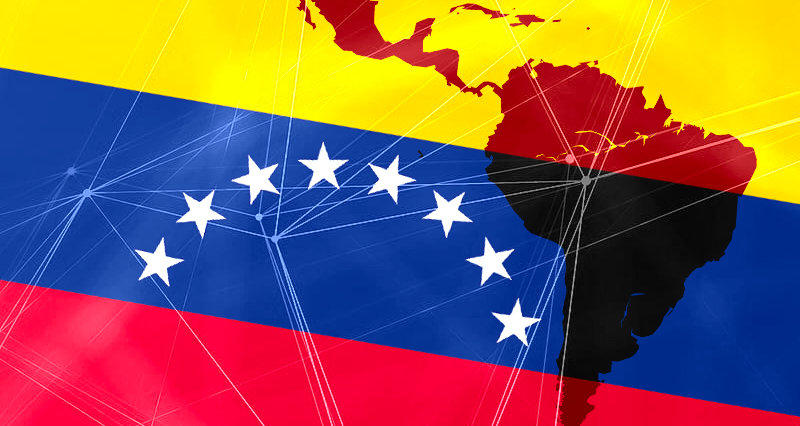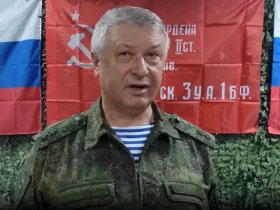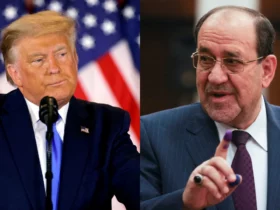During the past year, the Venezuelan government developed strong international activity with the aim of continuing to break the overwhelming blockade designed by Washington. The United States had developed this blockade as part of its isolation strategy within the framework of its policy of overthrowing the government of President Nicolás Maduro.
Breaking the intended exclusion that was applied to Venezuela required learning, developing and practicing an adequate methodology and an intelligent work scheme that abandoned some of the traditional molds of diplomacy. The goal was to embrace successfully the new moment that began to unfold in the middle of last year, when the first manifestations of the failure of the isolation policy of Venezuela at the international level were observed.
The radical measures taken included the decision to contract the role of the Foreign Ministry by successively appointing two low-profile incumbents with little political conduct: Félix Plasencia (August 2021-May 2022) and Carlos Faría (since then). These have introduced a greater centralization of the foreign policy in order to give direction to the difficult moment that the country is experiencing. This has been confirmed by the personal action of President Maduro, Vice President Delcy Rodríguez and the President of the National Assembly Jorge Rodríguez, on whom -since the first months of 2021- the total weight of the design and execution of the international relations.
This situation responded to short-term interests and will surely be modified sooner rather than later. The year ahead will be very intense in international matters. In addition to the negotiation with the United States, it will be necessary to work hard for integration in different scenarios such as Mercosur, Unasur, CELAC and Petro Caribe, among others. And in a few days, we begin a new moment in Latin America and the Caribbean when the CELAC Summit will be held in Argentina, to which -as appropriate- President Maduro has been invited. All this involves revitalizing the Foreign Ministry, providing it with dynamism and executive capacity so that it emerges from the morass in which it finds itself.
Current main task of foreign policy: Restoring of relations with the US
It is no secret to anyone that the main task of Venezuela’s foreign policy at the present time is the full restoration of relations with the United States. The Bolivarian government has precisely established that this will be possible on the basis of mutual respect and non-interference in internal affairs. To advance on this path, Venezuela has demanded the elimination of the 763 direct sanctions as well as the more than 900 actions of all kinds that make up a total of more than 1,600 unilateral coercive measures that Washington has adopted against the Venezuelan people.
The talks in Mexico with the terrorist sector of the opposition (which represents 18% of all the opposition in Venezuela) guided by Washington actually are a cover up of negotiations between the government of President Joe Biden and that of President Nicolás Maduro. Biden acts in accordance with an adverse correlation of internal forces that limit him to openly admitting that he is negotiating with Caracas. For this reason, he uses the most retrograde and discredited sector, therefore the most subordinate and manageable sector of the local right as an unofficial spokesperson for United States policy. The fact that the dialogue takes place in Mexico and not on national territory responds to Washington’s need to have direct control of the threads of the conversation, since by not having diplomatic relations with Venezuela, they are absent from the country to intervene in the decisions of the local subordinate political class in order to directly manage operations on the ground.
It seemed that the trip of Juan González, director for the Americas of the National Security Council of the United States to Caracas in March 2022 would open a space for direct dialogue between the two countries. But in reality, that visit was due to the need of the United States to explore the energy market after the start of Russia’s special military operation in Ukraine. Even this meeting should have been hidden from the US public opinion that can easily be manipulated after Biden’s alleged interest in negotiating the release of US citizens detained in Venezuela.
Biden intended to move away from Donald Trump’s “failed policy” against Venezuela – in order to make it more “effective”: He continued to pursue the objective of his two predecessors: the overthrow of Maduro. But this move has led him to disguise said objective, especially since he needs to have alternatives to the possibility of a global energy crisis of unsuspected dimensions if the war in Ukraine continues to drag on.
After the failure of the Lima Group as an operational instrument for the overthrow of Maduro and the political disappearance of most of its protagonists, Biden insisted on attempts to isolate Venezuela. For this reason, Caracas was not invited to the “Summit of the Americas” held in Los Angeles in June of this year.
The response of the Venezuelan government was to organize – simultaneously with the Summit – a tour through the Eurasian region, where President Maduro visited some of the countries that are leading the way in the new international system. Türkiye, Algeria, Iran Kuwait, Qatar and Azerbaijan configured the wide range of nations with which Venezuela strengthened relations with a view to expanding cooperation, trade and investment in various areas of the economy and services, emphasizing agriculture, tourism, finance, logistics, industry, mining and of course the energy sector.
Likewise, Venezuela continued adding expertise to the study and practical knowledge of measures and actions that allow it to circumvent the illegal economic, commercial and energy blockade decided by the United States and Europe. Similarly, President Maduro has carried out a political dialogue leading to exchanging ideas that lead Venezuela to play a relevant role in the world of the future.
Regionally continuation of policy of integration: Ambassadors from the continent arrive in Caracas
Regarding regional policy, Venezuela has continued to advance in its reinsertion process after the distancing of a large part of the countries of the continent that opted to follow the United States by betting on the overthrow of President Maduro. Since 2020, the country has witnessed the return of plenipotentiary ambassadors from Mexico, Honduras, Peru, Argentina, Colombia, and Uruguay, and most likely from Brazil next year, configuring a situation different from the one in 2019 when the United States tried to build a parallel state institution in the country that received the support of most of the right-wing governments in the region.
The full reestablishment of bilateral relations with Colombia has had a particular impact, given the high number of citizens of each country residing in the other and the multitude of common interests in terms of economic and commercial exchange, as well as the need to design a policy that allows the establishment of mutually advantageous operating standards on the extensive 2,219 km border between the two countries.
The possibility that a similar situation will occur next year in relations with Brazil after the assumption of the presidency by Lula Da Silva, will present a total stabilization of the two main land borders of Venezuela, generating conditions of stability and governance, resulting in a positive situation for the country, especially since the great tensions in terms of national security experienced in the recent past, will give way to the search for solutions through dialogue and negotiation in order to coordinate actions in the fight against drug trafficking, terrorism and organized crime.
Finally, within the framework of safeguarding national interests, Bolivarian diplomacy has endorsed Venezuela’s position before international organizations, by exercising a firm defense of sovereignty over the Essequibo territory. To this end, Vice President Delcy Rodríguez went to The Hague, Netherlands to present Venezuela’s position before the International Court of Justice when Guyana has violated the 1966 Geneva agreement to serve the interests of the large transnationals of the energy that struggle to get hold of the rich energy deposits of the territory.

















Leave a Reply